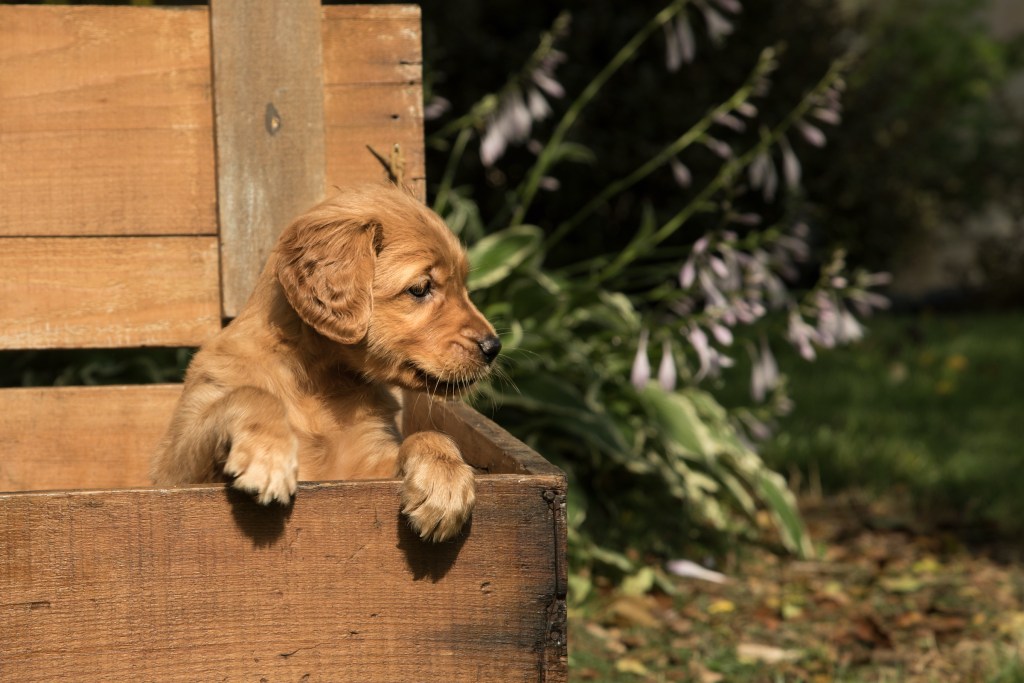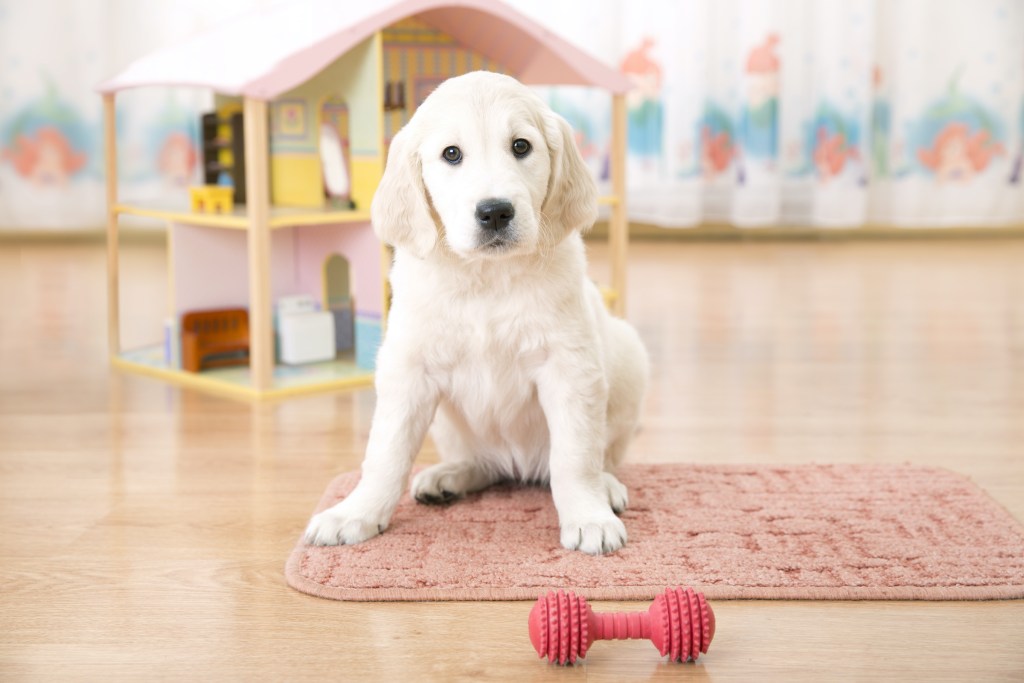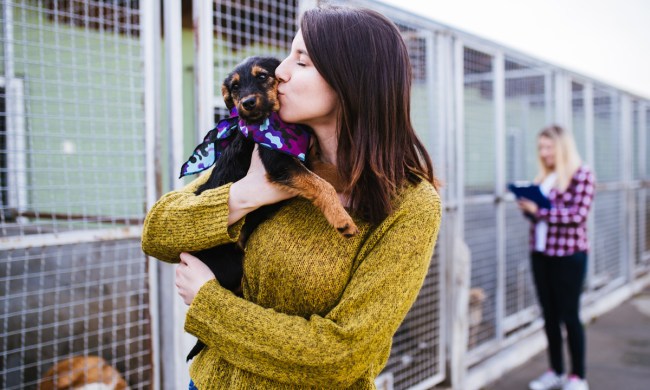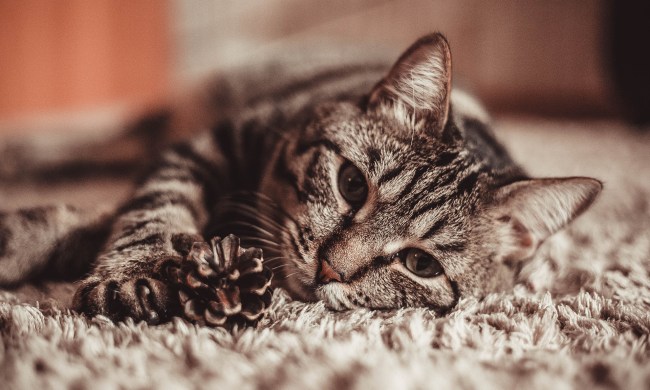Bringing home a new puppy can be one of the most joyful times in your life … until they destroy everything in sight the moment they’re left alone. From teething and growing pains to plain ol’ curiosity, there is a myriad of ways your newest addition can get into trouble. Whether you’re dealing with a particularly rambunctious pup or you’d simply like to get them started with good habits, crate training a Golden Retriever puppy can be a great option.
Goldens are known for their sweet demeanor and incredible gentleness, so they seem like perfect candidates for crate training. They’re also especially social pups, though, so will they tolerate being confined to a crate? The only way to find out is to try crate training for yourself, but we hope we can give you some idea of what to expect.

Are Golden Retrievers easy to crate train?
If you’re familiar with the image of the golden retriever as a well-tempered, friendly family dog — that’s for a good reason! Many dogs of this breed are as gentle and people-focused as you would think, but the American Kennel Club reminds prospective owners that Goldens aren’t simply born that way; it takes practice, patience, and love to raise a well-behaved adult retriever.
When you’re comparing goldens to other breeds, though, they are incredibly smart, people-motivated, and eager to please. This makes their motivation for training — including crate training — naturally high!
Is crate training good for Golden Retrievers?
No matter what breed of dog you have at home, crate training can have many benefits. Not only does it give you the ability to leave your pet alone without causing you anxiety, but it also allows your golden to have a safe space when they need some quiet time. Since crates can feel a lot like dens (the place wild canines and your pup’s ancestors call home) they can be comforting to your dog, too.
Rarely, crate training your puppy can exacerbate existing problems. Separation anxiety, in particular, may be triggered by crate time, so it’s important to address this issue before adding in a new habit, according to the Humane Society of the US. Crate training may not be a good idea for some dogs with medical issues, especially those that require frequent movement or bathroom trips.

Golden retriever crate training tips
If you do decide to try crate training your golden retriever puppy, keep a few things in mind.
Start young
It can help to start crate training when your golden is a puppy. The sooner going in their crate becomes a normal occurrence, the sooner your pup will learn to tolerate and even enjoy it. Don’t wait to give it a try!
Make it comfy
Another way to entice your young retriever to enjoy — or at least tolerate — using their new crate is by making it as comfortable as possible. If your dog has a favorite blanket, toy, or bed, this is the perfect place to keep it. Some owners even have a special toy or treat that their dog can only have while in their crate, which helps build positive associations and keeps your golden as happy as possible. If you keep this up, they’ll see their crate and think, “No big deal!”
The crate is not punishment
In order to help your puppy create a positive relationship with their crate, suggests Wag!, make sure never to use it as a form of punishment. In fact, encouraging your golden with a treat or some praise as they enter may inspire them to come back to their new spot.
Remember, the crate should be a safe place for your pup, never a place where they feel nervous or unsafe. It may help to remind family members and guests to let your dog relax unbothered when they go to their crate since they’re likely looking for some peace and quiet.
Start short
When introducing your golden retriever puppy to their new crate, make sure to start with short, frequent introductions. This will help avoid unnecessary anxiety from feeling lonely, as well as any accidents inside the crate.
As a rule of thumb, Wag! recommends that puppies stay in their crate no longer than one hour for every month of age. For example, a three-month-old golden pup shouldn’t be left alone for more than three hours.
Tire them out
When you’re ready to leave your puppy home alone in their crate for a little while, try taking them out for a jog (or at least get in some extra playtime) before you do. A tired dog is more likely to rest instead of worry, which will make the experience more peaceful for everyone.
As you practice crate time with your pup, you’ll get to know the tips and tricks that work best for you both. Perhaps a certain routine is most effective, or maybe your dog just needs some serious love and praise to motivate them. Try not to get frustrated if crate training your golden retriever puppy doesn’t go as planned right away — they’re just a puppy after all. There’s time!



